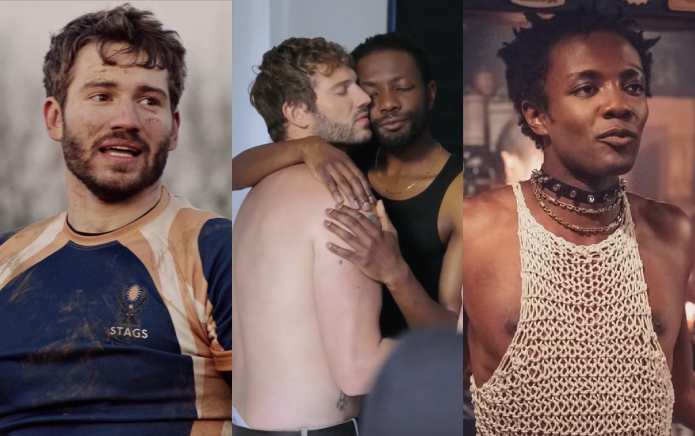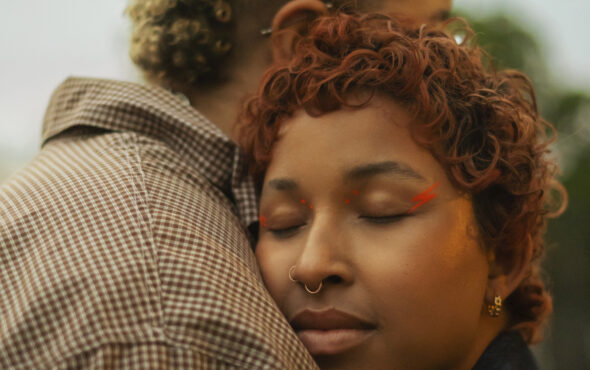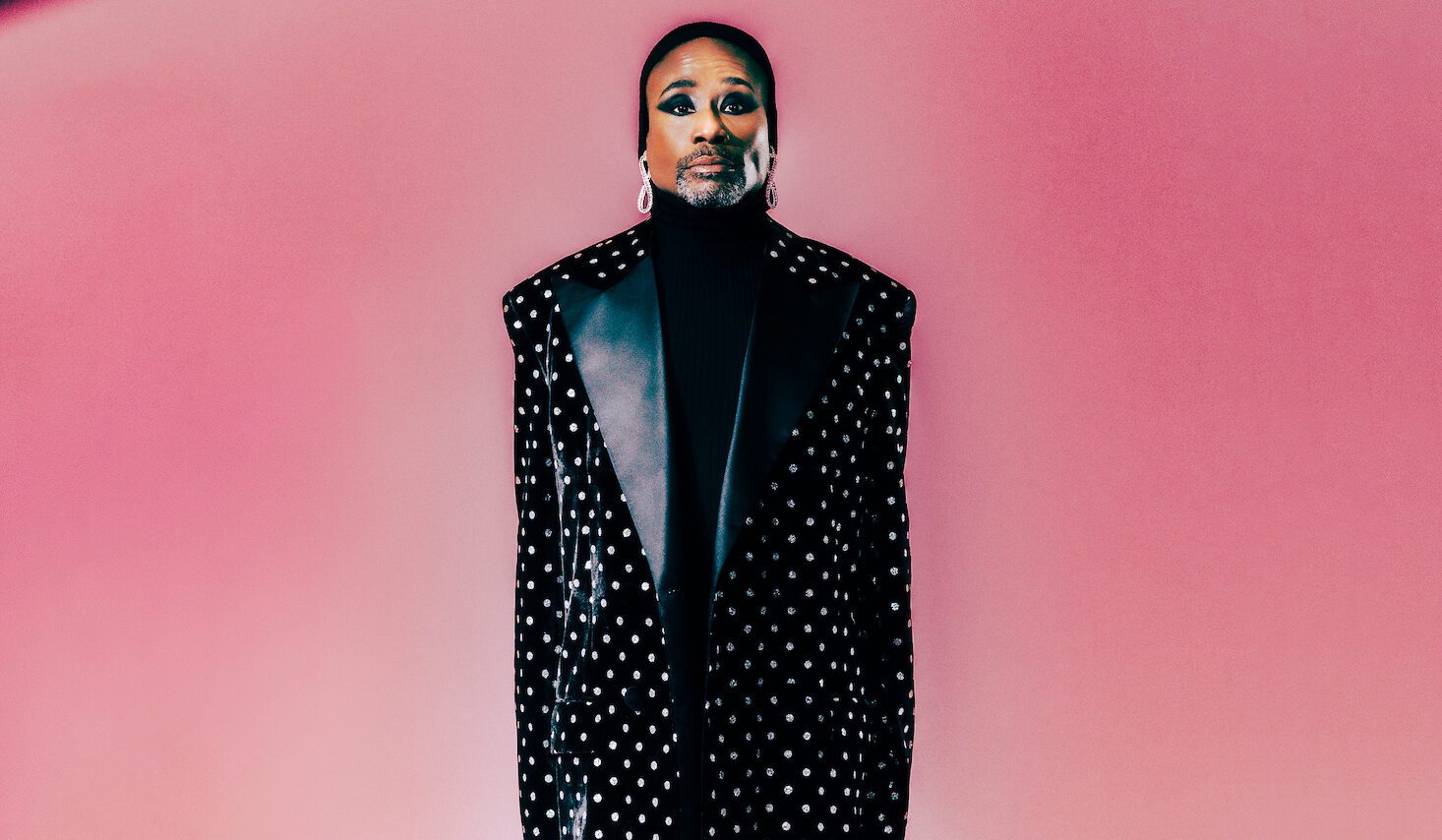
What’s your first recollection of the iconic Billy Porter? Belting out Cyndi Lauper-penned tunes for a starring role in a Broadway musical about a plucky shoe factory that pivots to producing glittery stilettos for drag queens? Changing the face of TV forever as the inimitable Pray Tell, a father community figure and ballroom emcee in Ryan Murphy’s glittering drama Pose, which contrasted the harrowing realities of the HIV epidemic with the glamour and joy of NYC’s vogue scene? Perhaps it’s strutting down the streets of New York in tufts of custom, Christian rainbow-coloured tulle and making headlines for disregarding the tired rules of gendered dressing?
Now, Porter wants to reintroduce himself as a recording artist. “I find myself on a re-education mission of who Billy Porter is,” the star says, taking a languid sip of his morning coffee and snacking on a very “girl dinner” breakfast of watermelon chunks. “Singing and music is the original gift and the original dream. I’ve been singing in the church since I was five,” he shares. “But I spent the first 25 years of my career – my multi-hyphenated career! – trying to get the gatekeepers just to take me seriously as an actor.” Porter has firmly achieved that goal, becoming the first openly gay Black man to win an Emmy in 2019, and is ready to embrace a new challenge.
The 53-year-old is ready to emerge as a vocalist on his own terms, with a new album that acts as an ode to the disco music he came of age with. Titled The Black Mona Lisa and due for a release in early 2024, it’s a record that truly encapsulates Porter’s energy: from disco-inflected production that embodies the provocation of 1970s queer nightlife to unapologetic lyrics about “not being ashamed anymore”. He wrote all of the music himself bar one track and “every song could be a hit! Every song. They’re really personal and specific to me and my skill sets,” he says, dramatically emphasising the “s” sounds in “skill sets” before doubling down on the sentiment by adding: “plural!” Even over an early morning call, the theatricality of how Porter uses his words – rolling the sounds over his tongue, squeezing out every drop of meaning – is not muted.
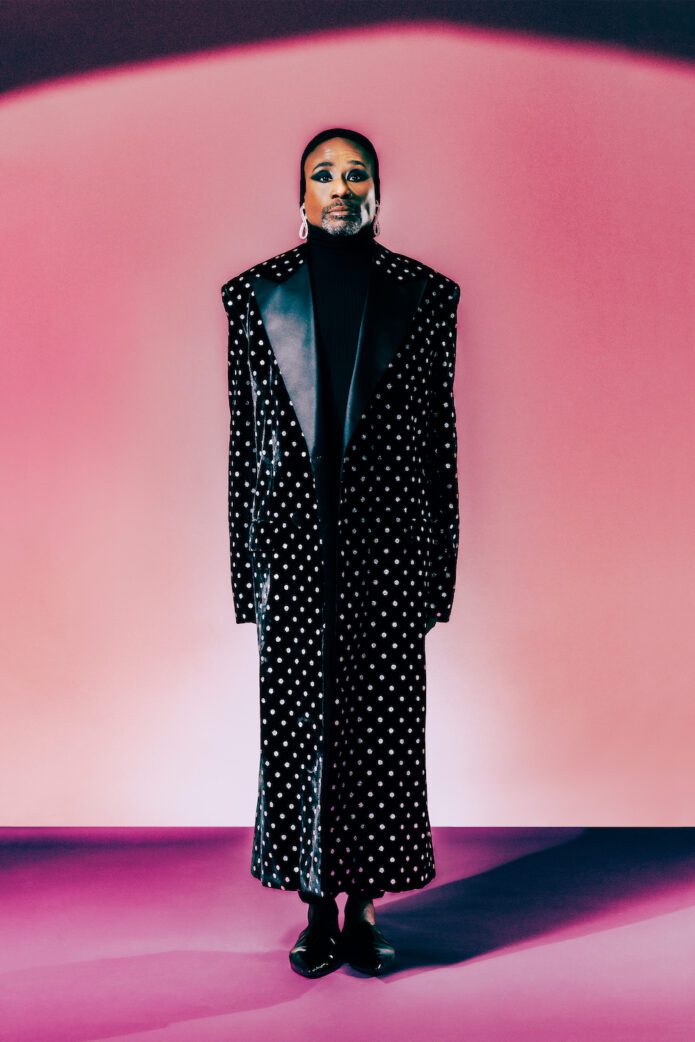
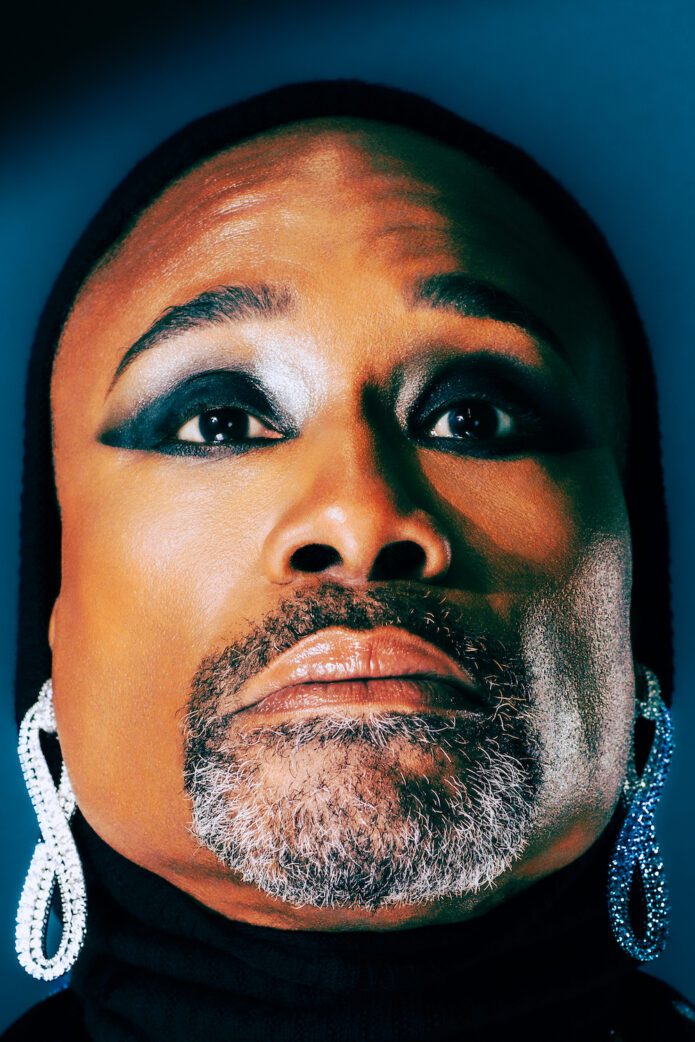
This is not Porter’s first album, it’s his fifth – but the first one where he is truly in the driving seat, steering his artistic vision. Previously, he has released three albums showcasing his vocal range through musical theatre covers. Prior to all of that, he released a debut album in 1997, one that played into the mainstream R&B sounds taking over the charts at the time.
As Porter explains, his past sound didn’t align with his own vision, but rather that of his label. “It wasn’t about me, it was about them and what they thought I should be. I’m grateful to have lived long enough to see the day where I get to steer this ship and be in control – and I really am in control this time,” Porter tells GAY TIMES.
You could say it’s the first album that is actually his own – his debut (Billy’s Version), if you will – but he sees it more as both a culmination and an answer to a life of fighting to be seen on his own terms and his talents to be recognised. “Putting together this album after a life’s work has been really healing, inspiring and one of the things I am most proud of in my whole life,” he says.
That’s the thing – Porter’s story of decades of musical experience giving voice to other characters, then finally creating his own opportunity to shine, is refreshing. As his star rose in recent years, he was approached by representatives from recording companies who felt “this is a thing that didn’t happen, should’ve happened and needs to happen right now.”
The original idea for the latest album was to create something in a similar vein to Beyoncé’s Renaissance – a homage to disco, house, dance and club culture. When writing and recording began, the sound quickly moved closer to disco and the instrumentation of the period, rather than the electronic club sound of today. “Disco is a magical sound. It’s classic. It will never go out of style or sound dated,” Porter explains.
The genre plays an important role within Porter’s own queer journey, as with many of his generation. After coming out in 1985 and being kicked out of the traditional religious communities he grew up with, Porter found himself discovering queer culture in the midst of the HIV crisis. “I found a home in the clubs. It was gay church. It was the space we went to on the weekends to have community, love one another and recharge for the rest of the fight. We were fighting for our rights, we were fighting to stay alive.”
But despite the genre being a saviour to many, he argues that its reputation has been unfairly sullied due to what came after. “Disco was the last time pre-AIDS that the world was free. If we think about the sexual and cultural freedom of the 1960s and 1970s, we were on the road to a euphoric society, and then AIDS happened. Disco took the hit. Whether subconsciously or consciously, it was blamed and lumped into that plague era and dismissed unduly.”
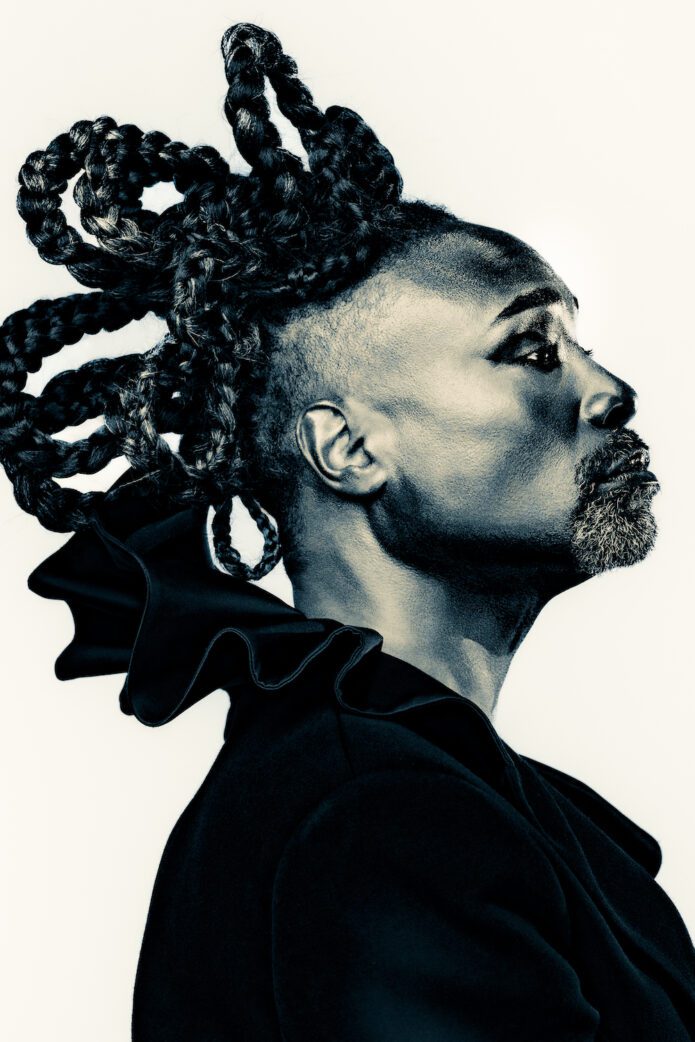
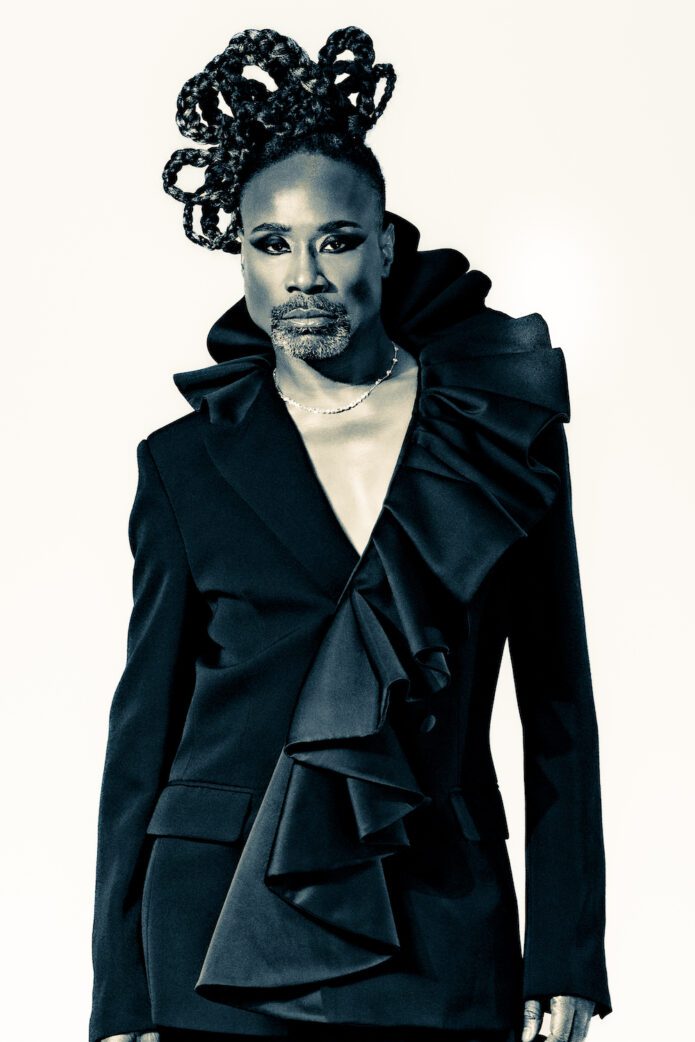
As a record, The Black Mona Lisa takes on questions of growing and getting back out there, perhaps because a new generation are finding resilience in the nostalgia of disco. Porter says if he had creative control over his music career 26 years ago, it would have sounded similar to this – a bold move at a time when, he notes, “nobody was doing that.”
Now, times have changed and the world is more ready to accept the talent and vision which Porter has to offer. “Everybody says ‘just be who you are!’ It’s easy to be who you are when who you are is what’s popular. I’ve always been queer; it’s always been a homophobic business. Period. The end.” It’s this defiant passion for showcasing queerness – whether it’s our culture or our history – that is why Porter is receiving the Outstanding Impact Award at GAY TIMES Honours 2023.
Another area of Porter’s influence that is most felt is, undoubtedly, his fashion. From his flowing custom Christian Siriano tuxedo gown at the Oscars to a killer boots and suits combo at the VMAs, the actor has always made a statement with style. However, it was long prior to flashy red carpets and mobbed premieres that Porter learned the importance of fashion as a tool to communicate who you are to the world.
Growing up in the Pentecostal church, amongst the first generation post the Civil Rights Movement, the actor was taught that “people are going to judge you based on what you look like and so you wear a suit to be taken seriously”. Turning this lesson on its head, Porter has used style as a form of activism and a way to communicate his message to the world: donning ever-more expressive clothing in order to challenge gender norms, all while cementing himself as a bold and uncompromising force on the red carpet.
Porter’s assent as a fashion figure has been unmissable and, rightfully, well documented. He turned heads in the 90s with his unbuttoned shirts and on-brand beaded necklaces. In 2013, he pioneered the role of the drag queen Lola to critical acclaim in the beloved underdog musical Kinky Boots, and played with his image by contrasting his on-stage character with his own geek chic style. But after he left the show in 2015, he looked for a new style and found inspiration in the genderless aesthetics of Rick Owens. “I’d never thought about wearing dresses or feminine silhouettes prior to that,” he says.
“It’s not lost on me that I am part of the generation that has kicked the door down, and I get to walk through that door – that doesn’t happen often.”
From here, Porter became a pioneer of genderless style. “I think I’m a part of the revolution. I have a big voice in it. The tuxedo dress has changed the culture forever.” He’s referring to his famed look from the Oscars in 2019, where an unassuming blazer, shirt and bow tie extends into an elegant ball gown. The legendary garment’s impact has been recognised in redefining menswear and the discourse around masculinity and was included, amongst other internet-gagging looks of his, in Fashioning Masculinities, a recent retrospective on the topic at the V&A in London. Though Porter believes his fashion, which is largely just his own self-expression, is sensationalised in the media, he also acknowledges the platform this brings to the message he wants to send. “Even when I’m not wearing dresses it’s reported as if I’m wearing a dress, or that I’m just trying to shock and it’s so far beyond that for me. I want my fashion to be activism. I’m trying to have a conversation and the conversation is that clothes do not have a gender.”
Porter clearly sees his role as a teacher of the younger generation, underpinned by the fact that, throughout much of our conversation, his camera is angled up at his chin, meaning I often feel like a cross-legged pupil about to be schooled (I am). “We’ve been living in such a progressive space for so long, there is a full generation of young people that were born into rights that you didn’t know didn’t even exist ten or twenty years ago,” he says. Perhaps that’s not true, Gen Z are a generation fairly aware of social injustice and are ready to speak out on it, but that knowledge is because of art like Pose that played a massive role in portraying queer Black history, NYC Ballroom culture and the AIDS crisis of the late-twentieth century US, all histories that are rarely taught.
Porter plans on continuing that teaching legacy with The Black Mona Lisa – where homages to gospel and powerful messages of self-acceptance reverberate throughout the record. If Porter wasn’t prepared to make an impact with this album, it’s clear he wouldn’t release it at all. “I grew up with protest music. There’s not a whole lot of that anymore. Everybody is so afraid to speak,” he says. He then references a quote from the essay, No Place for Self-Pity, No Room for Fear, written by writer Toni Morrison in 2015: “This is precisely the time when artists go to work. There is no time for despair, no place for self-pity, no need for silence, no room for fear. We speak, we write, we do language. That is how civilisations heal.”
Porter sees his life, his art and his voice as having a responsibility to raise the next generation to understand the past so that they can learn from it – not just in terms of queer history but all elements of his identity, particularly his experience as a Black man in the United States. “I’m queer but I was a Black man in this world first,” he explains, and wishes more people would take on that role. “There is a teaching fatigue from those of us in minority communities. I get it, why should we have to teach? It’s been hundreds and hundreds of years and people act like they still don’t understand and it’s annoying. And yet we’ve still gotta do it. We have to find a way to make our presence known and take up space, always.”
He’s not worried about how people will respond to the social commentary in his work, preemptively sending off any potential critiques of the political bent of the new music. “We’re trying to say something, are we not? Everything that comes out of my mouth is intentional and sometimes I get people’s panties twisted. Too bad!” he declares wryly. “If the truth makes you uncomfortable, it should! What I love about my music and my art is that I get to speak directly to power in this way.”
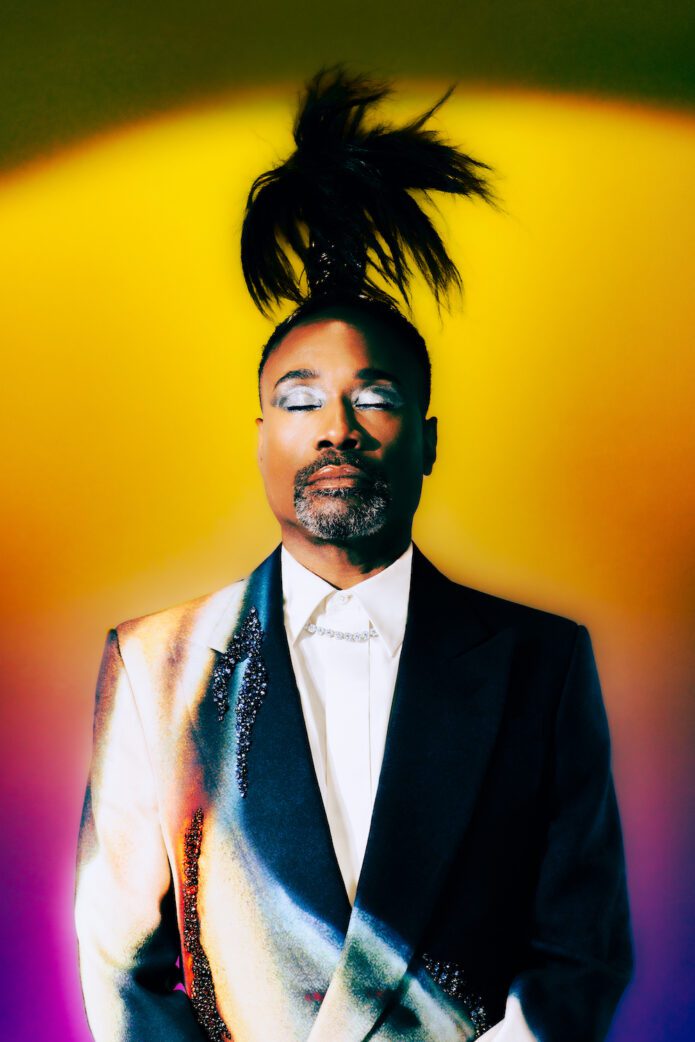
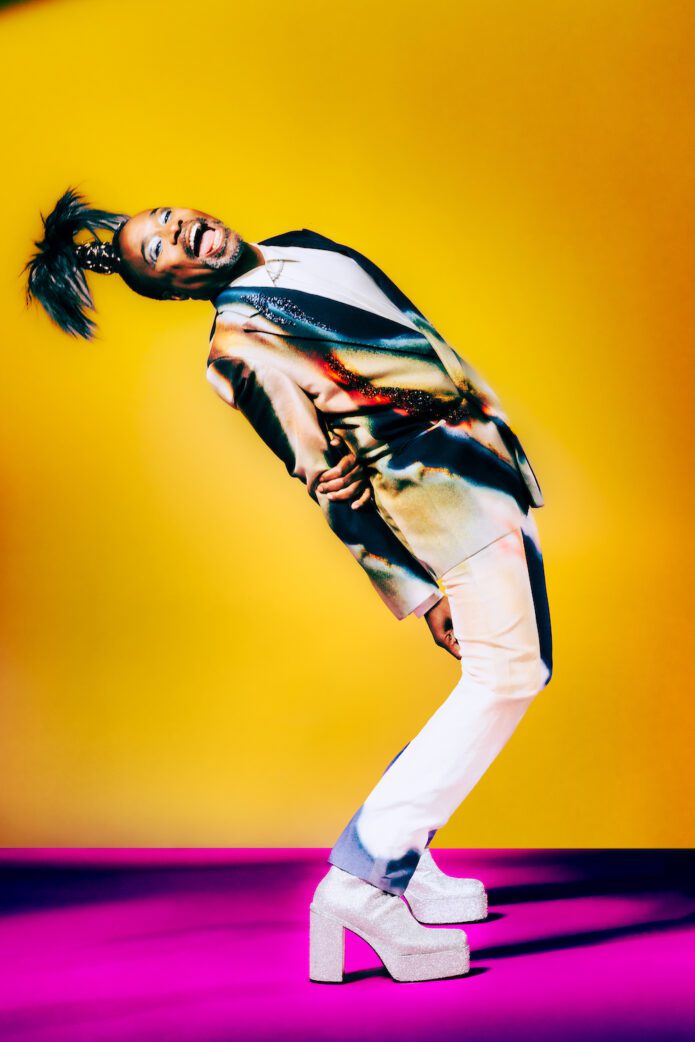
Part of Porter’s sense of responsibility for the community – and his brilliant unwillingness to compromise – stems from the fact that he came into his queerness alongside many who are no longer here. “It’s not lost on me that I am part of the generation that has kicked the door down, and I get to walk through that door – that doesn’t happen often.” As a society, we lost an entire generation of queer talents to the HIV crisis before they got to share their art and their stories and Porter is one of the trailblazing few able to keep the memory of that time and culture alive. “I’ve had survivor’s guilt. I’ve been HIV positive since 2007 and it fucked me up for a minute.”
In the initial panic after his diagnosis, his first thoughts were that of blame and shame as he questioned how he got it and how “he should know better.” Not anymore, though. “Now I understand I’m here to speak for that generation and remind the world who we are and [who we have] always been. Our contributions will be honoured and I get to be a part of making sure that happens and that is a gift to me.”
He may be on a “re-education mission” to finally be recognised as a recording artist, but Porter will already be remembered for teaching the next generation about queer history and the people that created the culture we enjoy today through his jaw-dropping fashions, industry-changing performances and authentically showcasing within his very being the culture that has shaped the queer scene of today. That will be his legacy. “I want, not just the queer community, but all communities to know that your authenticity is the only thing that matters,” he says of his own desired mark.
It’s interesting that Porter still feels, even after a thirty-year career, numerous public appearances and a culture-shifting impact on the world, like we don’t fully know him yet and maybe that’s because, despite his unmatched talents and impact on queer culture, he’s only really been getting his flowers now. There’s clearly a lot more he has to say, and while his fashion has been a vehicle for his message over the last few years, this invigorating record feels like the dawn of a new chapter for him, one where Billy Porter, outside of the drama and artifice of Hollywood, shines through raw and invigorating lyrics. After all, Porter isn’t just a reflection of his iconic characters – Lola, or Pray Tell, our community’s queer fairy godmother. He’s Billy Porter, and he’s blazed a trail for all of us.
Billy Porter’s fifth album, The Black Mona Lisa, will be released in early 2024.
Porter will receive the award for Outstanding Impact at GAY TIMES Honours 2023, which will be celebrated on 17 November. Get your ticket to the queerest night of the year here.
This interview is taken from the October 2023 issue of GAY TIMES. Head to Apple News + for more exclusive features and interviews from the issue.
